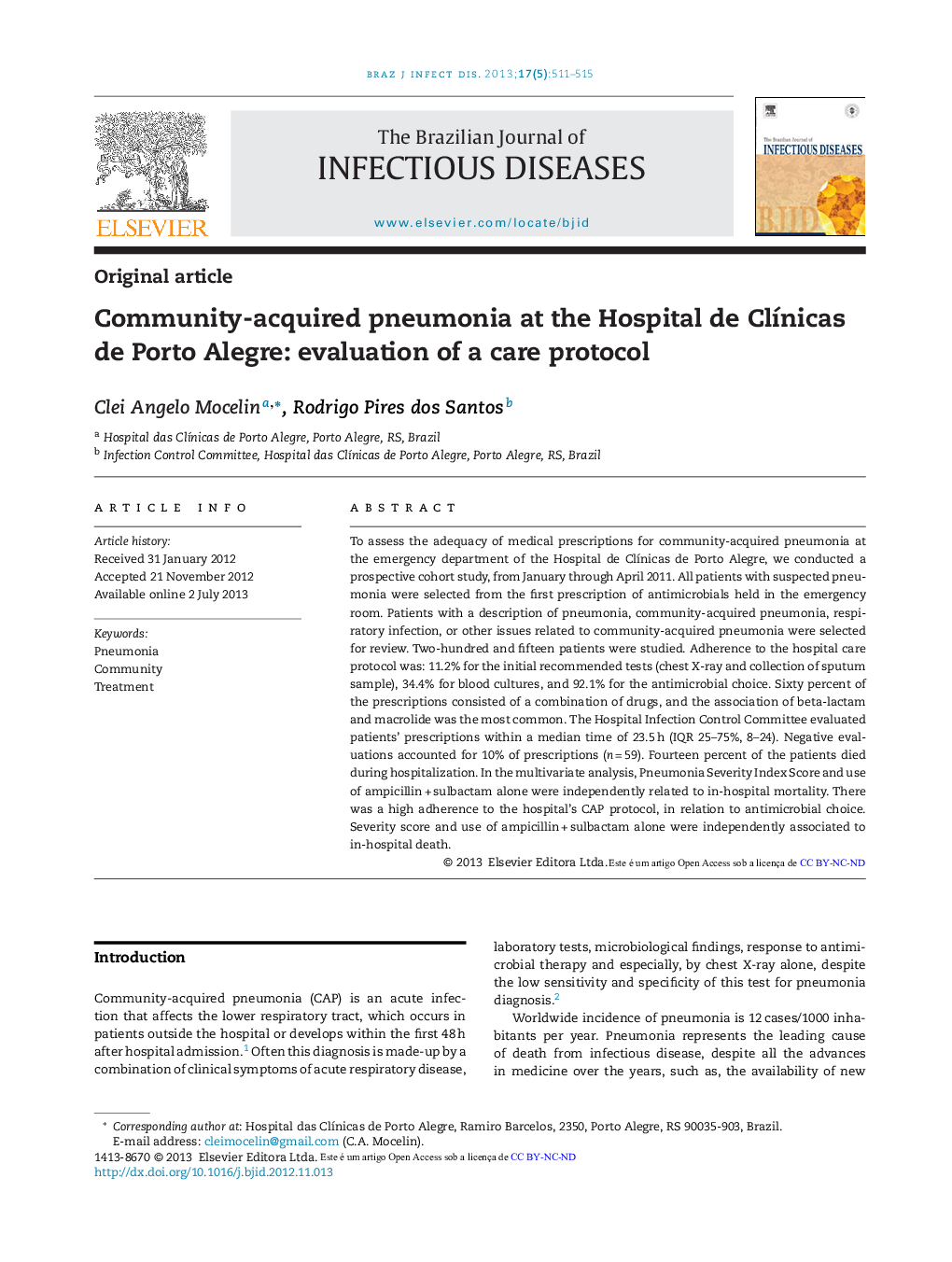| Article ID | Journal | Published Year | Pages | File Type |
|---|---|---|---|---|
| 3344096 | The Brazilian Journal of Infectious Diseases | 2013 | 5 Pages |
To assess the adequacy of medical prescriptions for community-acquired pneumonia at the emergency department of the Hospital de Clínicas de Porto Alegre, we conducted a prospective cohort study, from January through April 2011. All patients with suspected pneumonia were selected from the first prescription of antimicrobials held in the emergency room. Patients with a description of pneumonia, community-acquired pneumonia, respiratory infection, or other issues related to community-acquired pneumonia were selected for review. Two-hundred and fifteen patients were studied. Adherence to the hospital care protocol was: 11.2% for the initial recommended tests (chest X-ray and collection of sputum sample), 34.4% for blood cultures, and 92.1% for the antimicrobial choice. Sixty percent of the prescriptions consisted of a combination of drugs, and the association of beta-lactam and macrolide was the most common. The Hospital Infection Control Committee evaluated patients’ prescriptions within a median time of 23.5 h (IQR 25–75%, 8–24). Negative evaluations accounted for 10% of prescriptions (n = 59). Fourteen percent of the patients died during hospitalization. In the multivariate analysis, Pneumonia Severity Index Score and use of ampicillin + sulbactam alone were independently related to in-hospital mortality. There was a high adherence to the hospital's CAP protocol, in relation to antimicrobial choice. Severity score and use of ampicillin + sulbactam alone were independently associated to in-hospital death.
